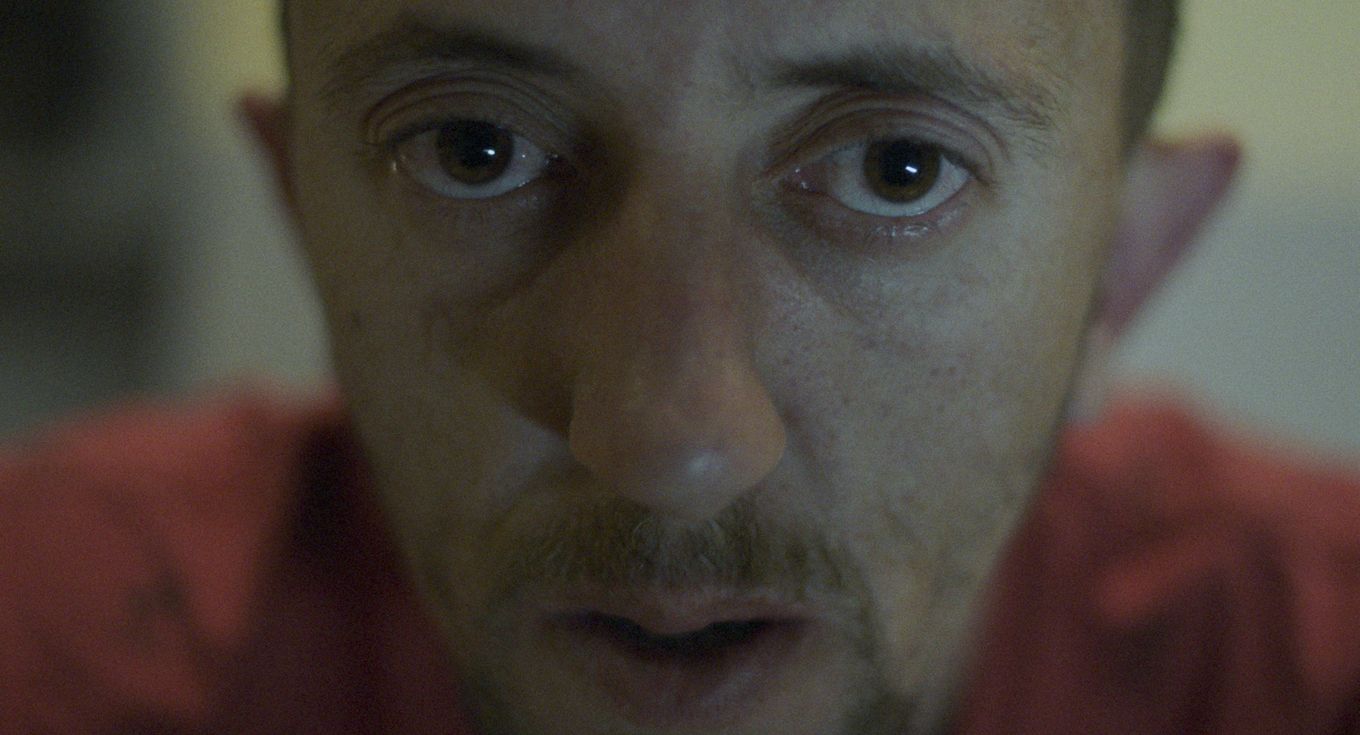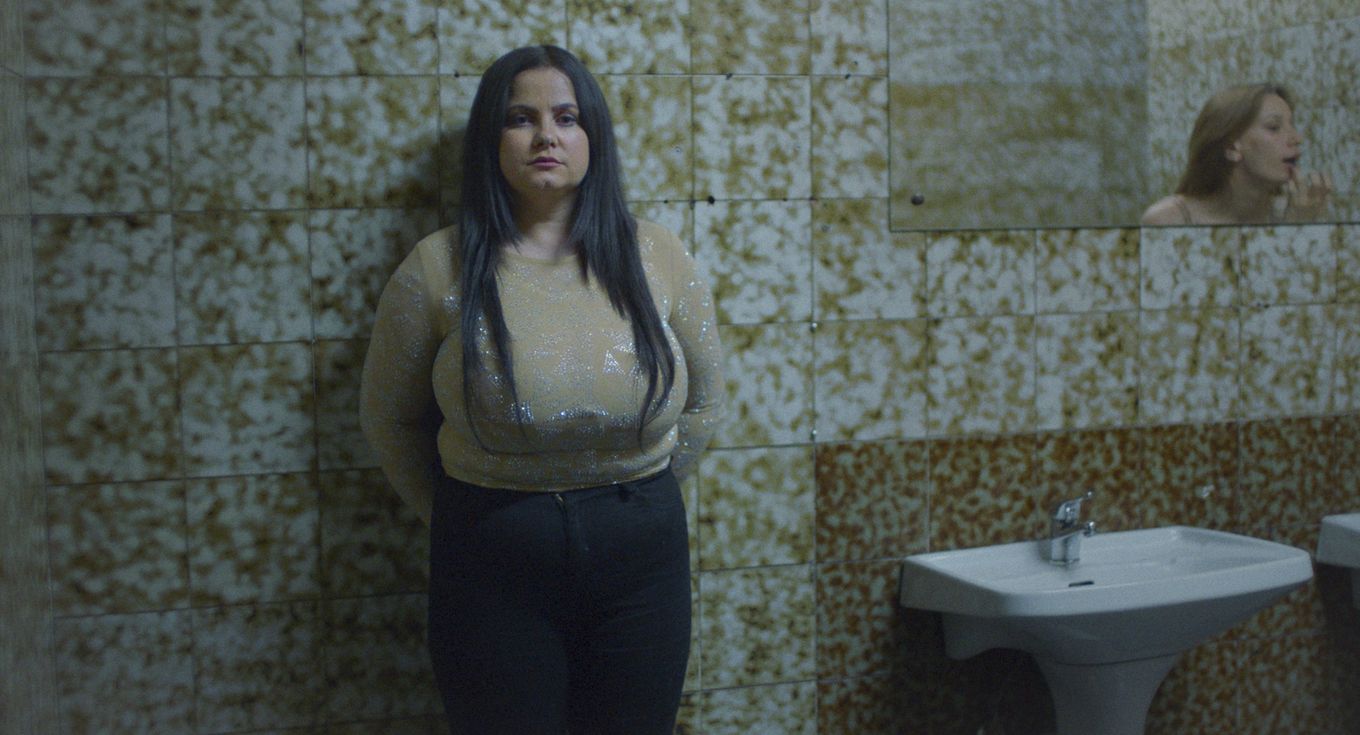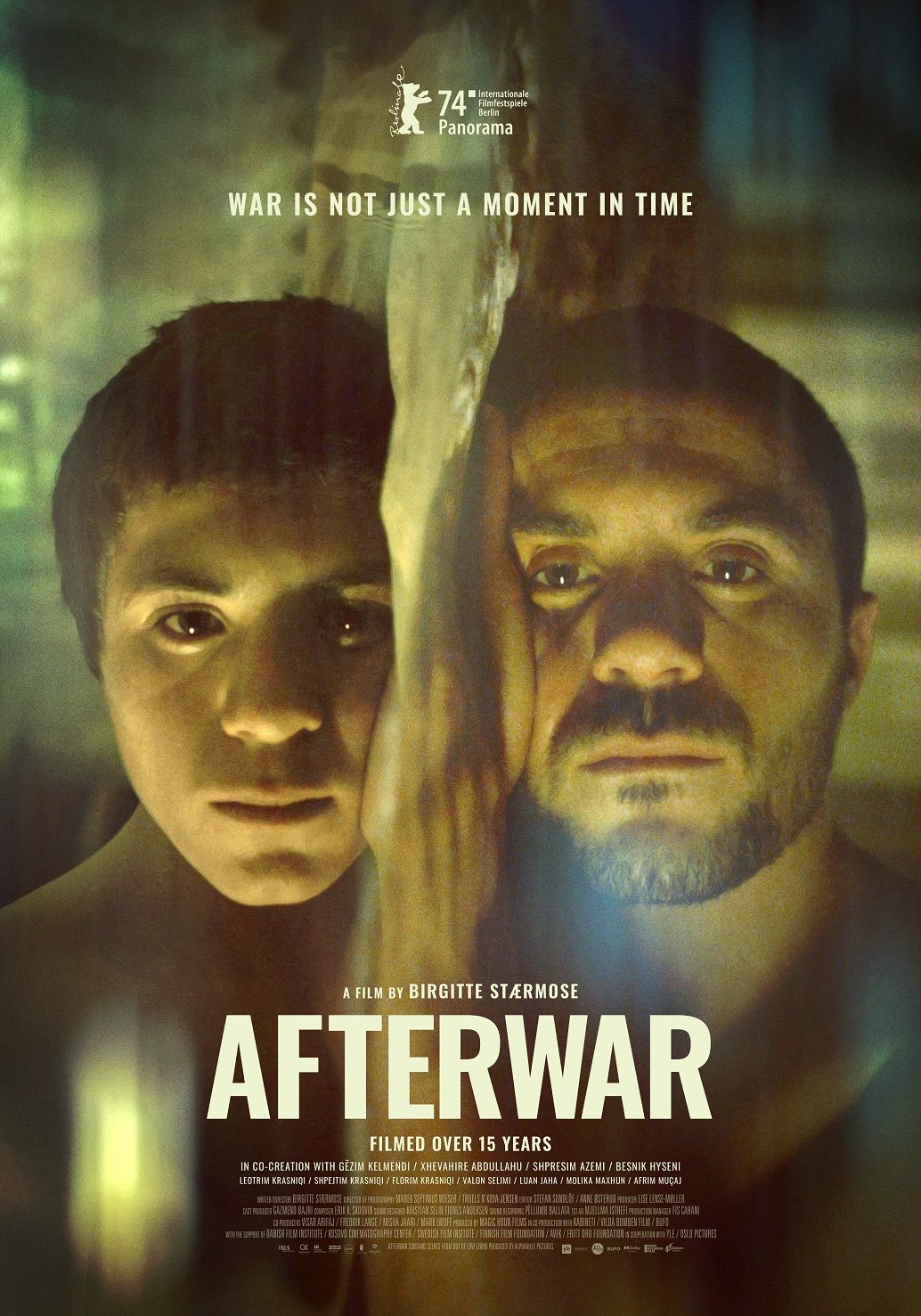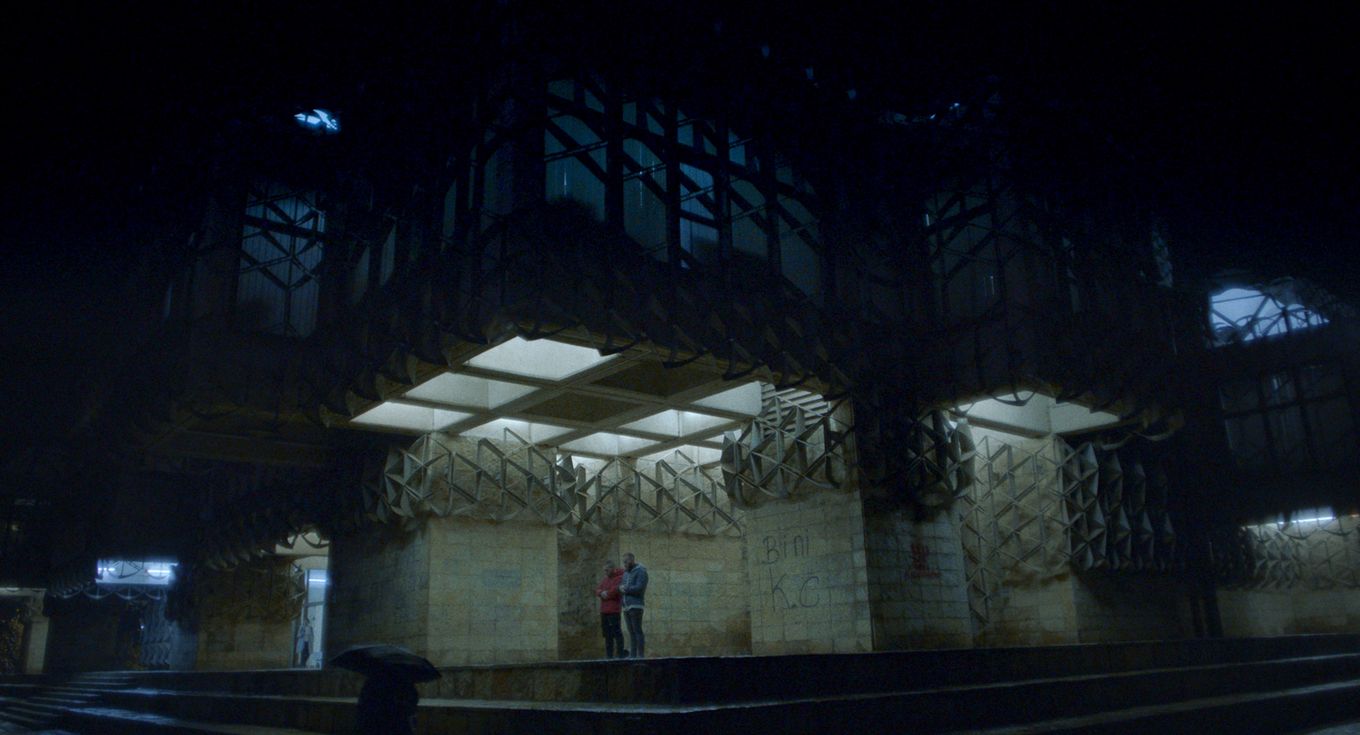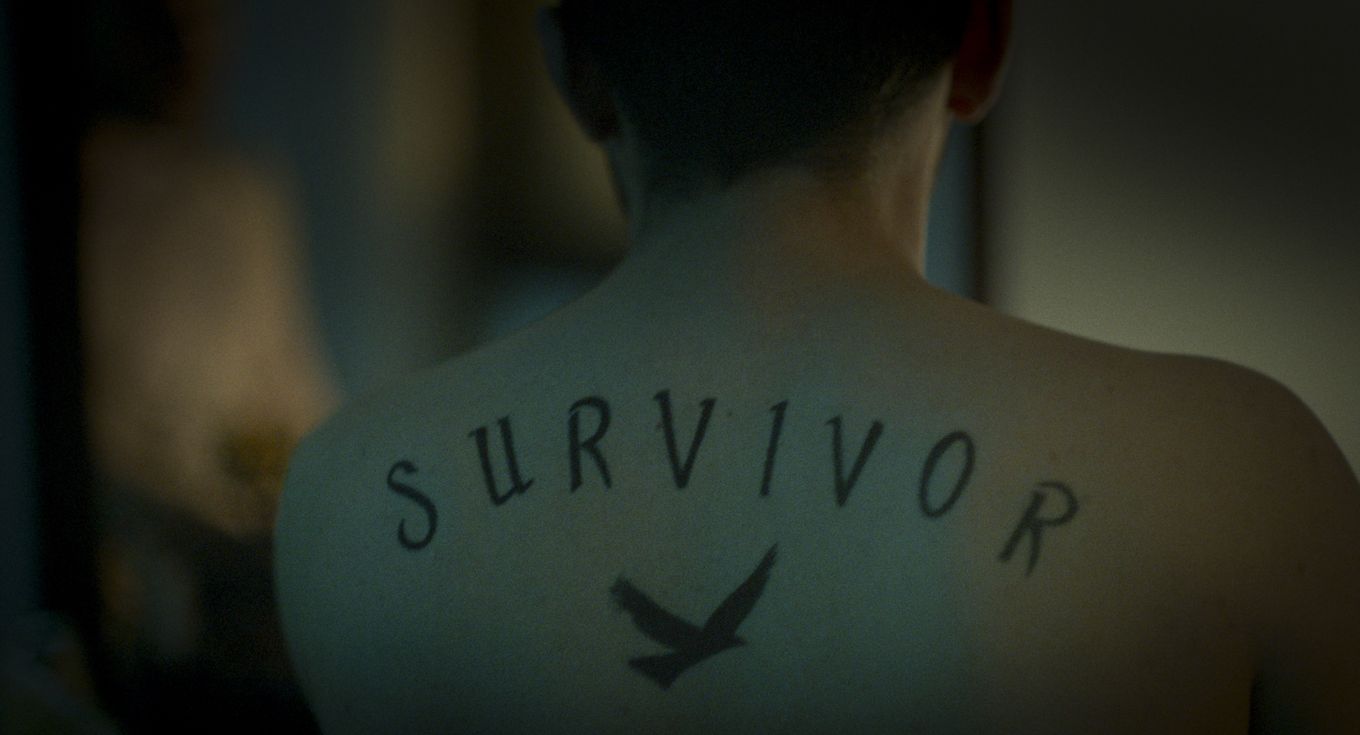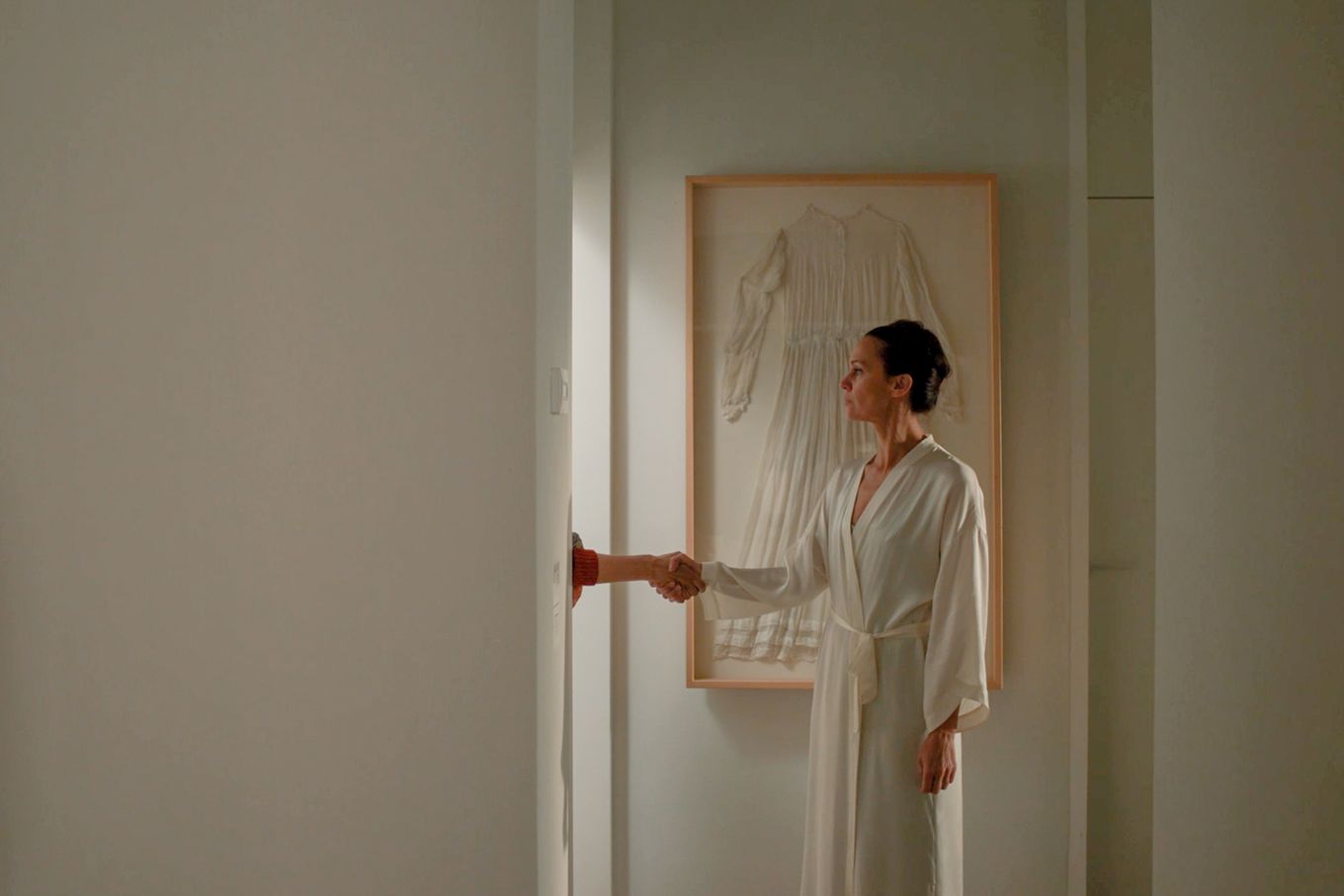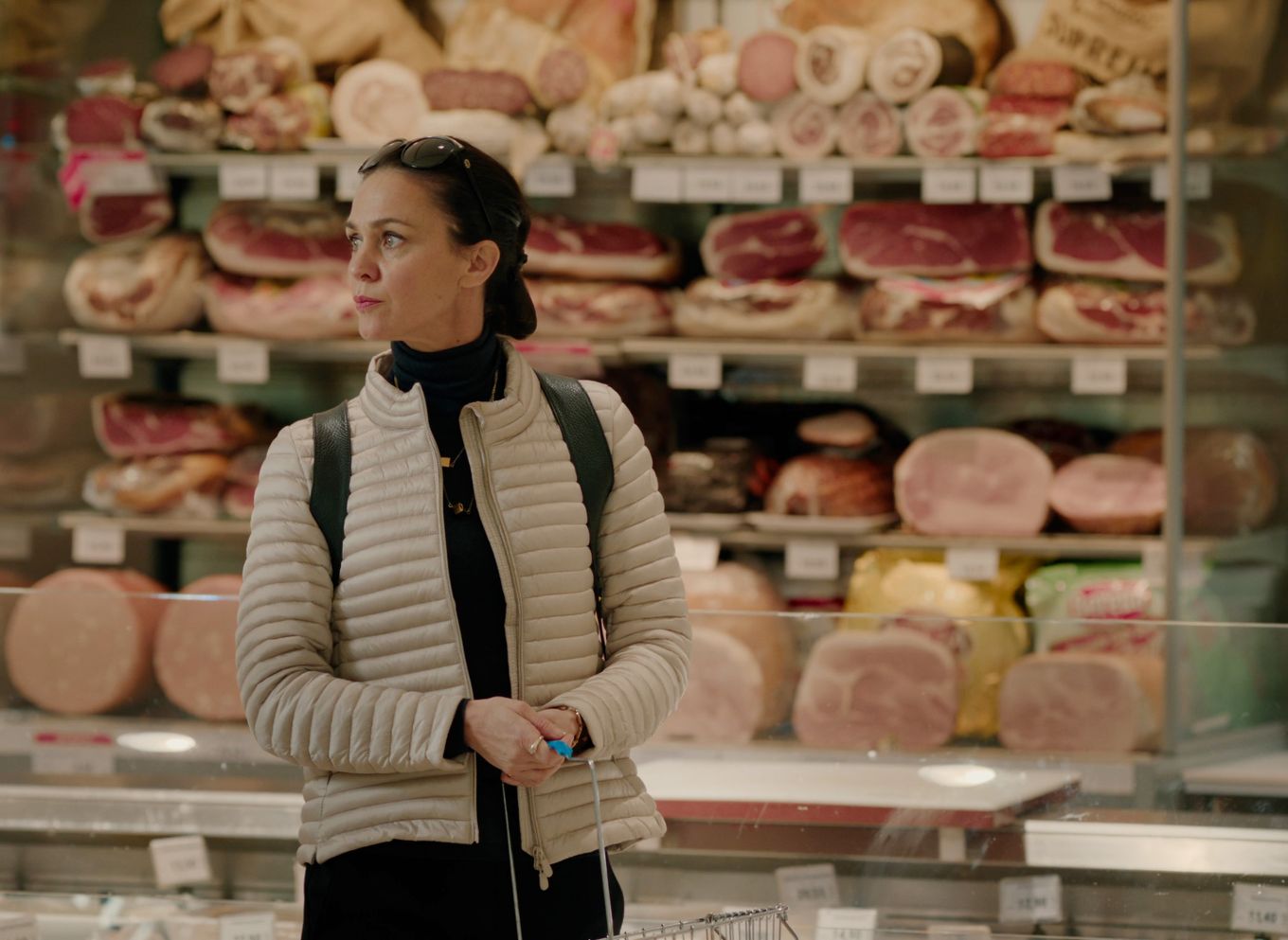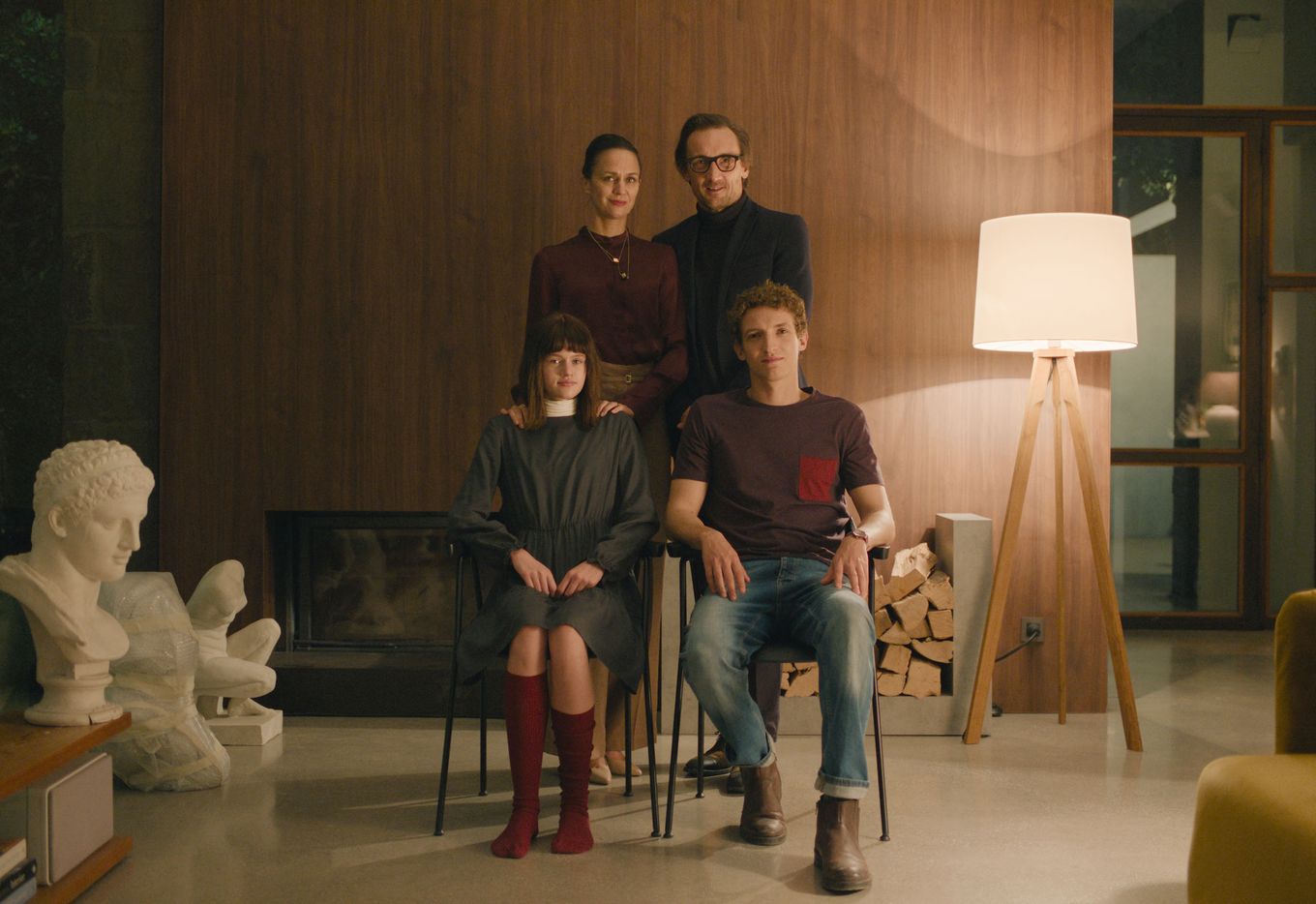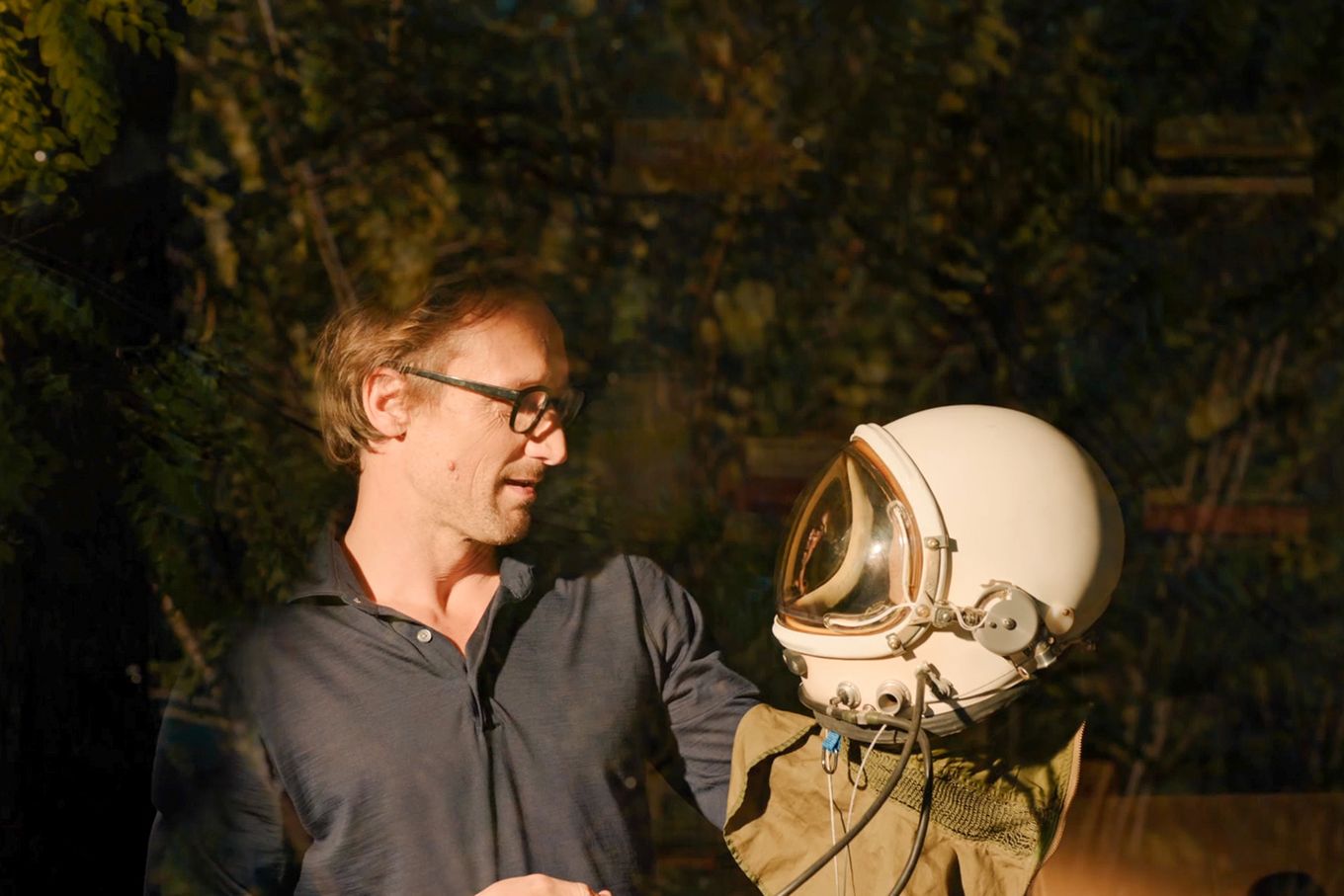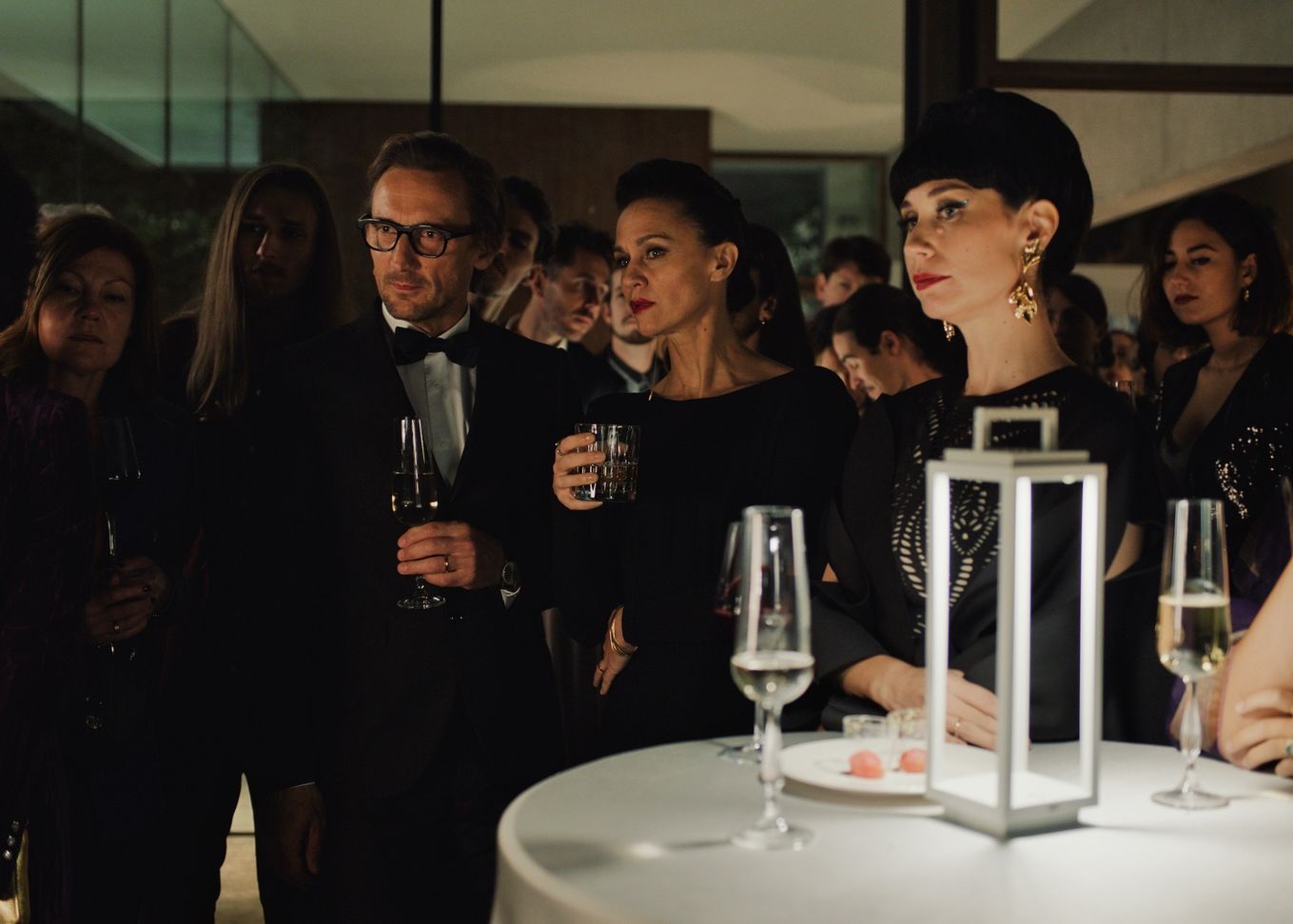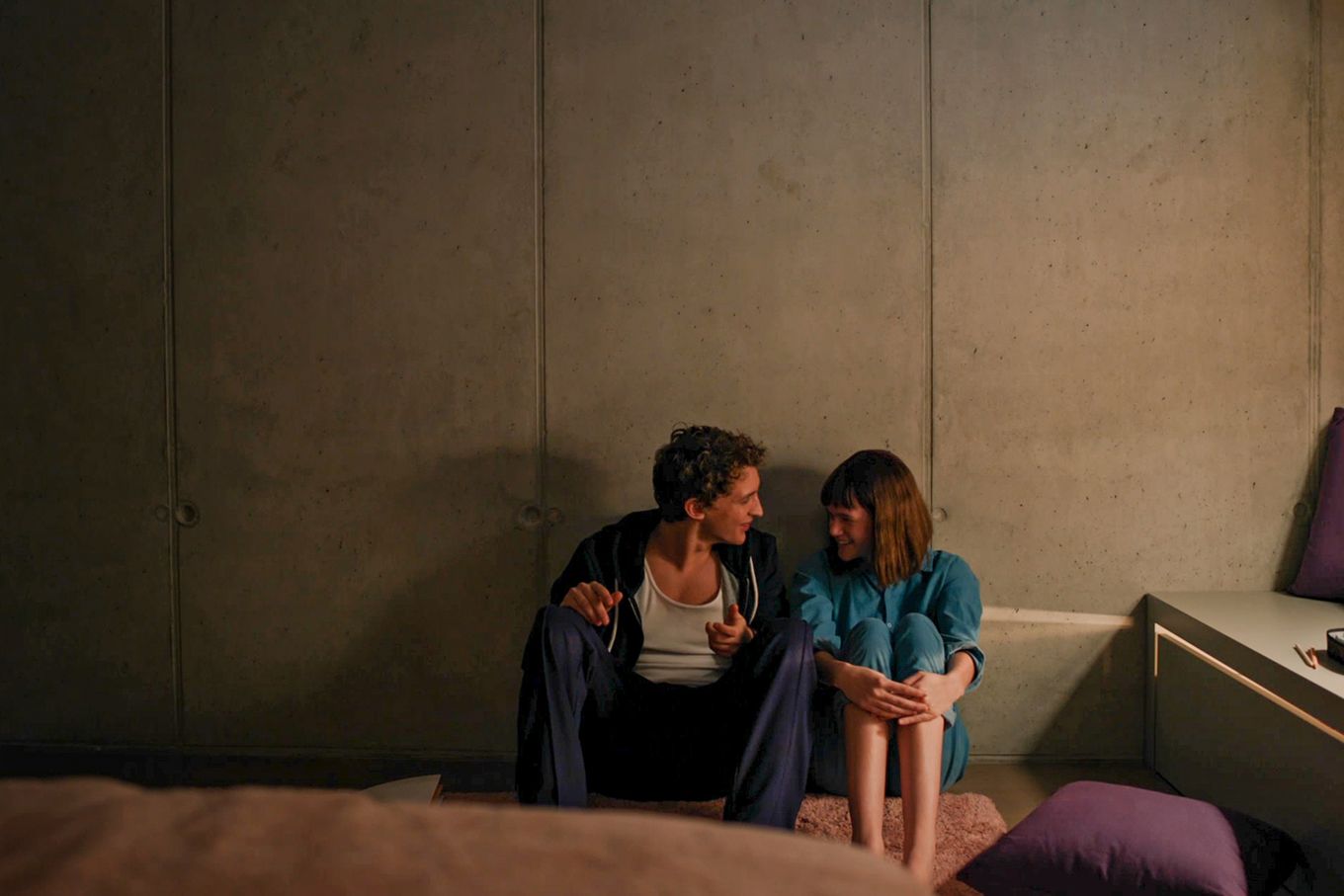Visionaries
In the spirit of expanding the program, which is taking place in the run-up to the European Capital of Culture GO! 2025, and with the desire to bring innovative authors to our region, we expanded the program in 2023 with the Visionaries section which showcases contemporary European film production. The goal is to highlight bold and innovative works by European directors. We aim for each film in this section to represent the pinnacle of contemporary European film production.
Afterwar
(Birgitte Stærmose, 2024, 85')
9. 10. 2024, Kulturni dom Nova Gorica (Nova Gorica) at 20:30
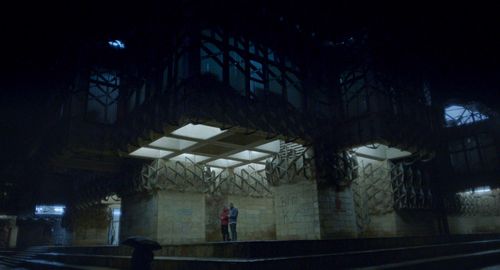
Synopsis
Burning buildings in a dense fog, a dead horse on a dusty road, people fleeing through harsh mountain landscapes. Afterwar opens with images from war-torn Kosovo, 1999, as a dark chapter in the history of modern Europe draws to a close.
After the war, children sell peanuts and cigarettes on the streets of Pristina in order to survive. They speak to us: ‘There’s only one reason I’m talking to you. It is my hunger! I’m so hungry, I could eat your money!’ In a cinematic testament co-created over 15 years, they transform into adults before our eyes. Yet the child still stares back at us from behind the adult gaze, as the struggle to survive becomes a struggle for a future at all. They confront us with their innermost secrets and desires, while stuck in limbo and haunted by their past.
Through a close artistic collaboration with the lead cast – Xhevahire, Gëzim, Shpresim, and Besnik – the film moves between raw realism, staged performance, and an existential meditation on the long-term repercussions of war. Any war, anywhere.
Birgitte Stærmose

Birgitte Stærmose is an internationally acclaimed writer-director of award-winning shorts and feature films. Her short Out of Love (2009) is the precursor to Afterwar. It premiered and was awarded at Berlinale 2009. For the past five years Stærmose has worked internationally as lead director on drama series for HBO, Starz and Netflix. Her most recent feature, Camino, premiered as the Closing Film at GIFF (2023) and was released in selected theatres and on the Viaplay platform April 2023.
Afterwar is a passion project that has spanned 15 years.
Director's statement
"We are continually being met with a media that describes war as a dramatic moment in time. The headline on the evening news is about the most recent bombing or the casualty count. We think of war as something that happens, and then it is over. But the war lives on in the people who experienced it. I am still grappling with the enormity of this. In Afterwar, I want the audience to be confronted by this as well. When meeting people who suffer more than we do, we often use pity to get past our own discomfort. If we feel sorry for another person, we feel that we have done our part. I have made a film that does not allow this easy way out. I have been profoundly changed by the encounter with the cast, and similarly, I would like the audience to leave the cinema unable to forget about their destinies. The short film Out of Love (2009) is a milestone in my career as a film director. It was created in the space between two feature films, and it was in the artistic work with the short film that I found the freedom to be formalistically daring. The form and approach of the film grew out of a need to protect the children who were the subjects of the film and their stories were fictionalized. In the process I developed a language that was a form of heightened reality, a collective testimony, which created an opportunity to tell intimately and emotionally, without revealing the actual private facts of their lives. Afterwar defies classical genres. It is not a true fiction film; nor is it a documentary. The film is a meditation and an elevated reality building on the lived experience of the cast. The script for the film is based on extensive transcribed interviews and a co-creation process with the lead cast over many years. Fictionalizing has been a way to liberate the cast and myself from rigid reality in order to get closer to the truthful essence of what was really going on in their lives and what was defining for their collective condition. And I am a fiction director. In directing Afterwar I have used all the storytelling tools of a fiction film. I have directed the cast the same way I would direct professional actors, being focused on revealing emotion and inner life of the characters. They tell their collective story - through monologues spoken directly to the camera as well as staged scenes, sometimes together with professional actors and sometimes with amateurs. I see the film as a form of witnessing. A statement about the inner life of our cast, more than a factual story about them. They all share essentially the same story - the collective story of a whole generation living in the limbo of ‘afterwar’."
Family Therapy
(Sonja Prosenc, 2024, 122')
8. 10. 2024, Kulturni dom Nova Gorica (Nova Gorica) at 19:30
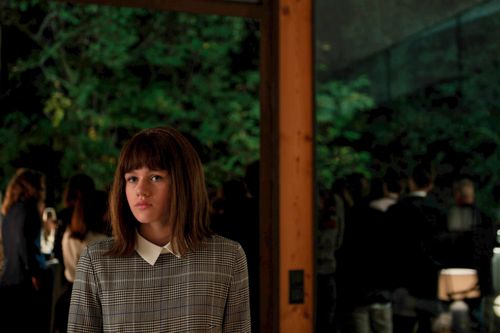
Synopsis
A young stranger, Julien, enters an outwardly perfect family and disrupts the fragile balance of their dynamics. Through the cracks in the carefully guarded family façade, the comedic dysfunction of the relationships between Aleksander, Olivia, and their teenage daughter Agata is revealed.
Sonja Prosenc
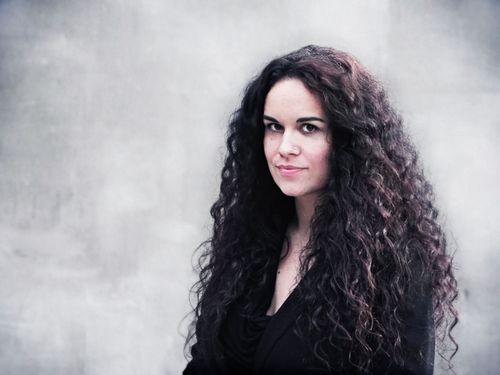
After graduating from the University of Ljubljana, Sonja Prosenc participated in international screenwriting programs such as TorinoFilmLab (Turin) and Midpoint (Prague) and attended Berlinale and Sarajevo Talents. She is the co-founder of the production company Monoo. Both of her feature films, The Tree (2016) and History of Love (2020), were selected as Slovenia's official Oscar entries. History of Love won awards in the main competition at the Karlovy Vary International Film Festival in 2018, as well as the Directors Guild of Slovenia Award, and other international and domestic accolades.
Her distinctive cinematic language has garnered attention from film enthusiasts, critics, and academics alike; studies of her films have been published in academic journals in both Europe and the USA, most recently by Berghahn Books, New York, Oxford. Her debut film The Tree was included in the Anthology Film Archives New York with the release of the book in April 2024. In addition to her arthouse dramas, she has successfully ventured into the comedy genre with the short film Paradise (2019), which won the Vesna Award for Best Short Film, and the thriller genre with the series Trigrad, first presented at Series Mania in France and nominated for several awards at the Sarajevo Film Festival 2023, as chosen by over 450 voting members of the Regional Film and TV Academy.
Currently, together with co-author Teona Mitevska, she is one of five European screenwriting duos selected for the French CNC program, Going European. Recognized as one of the "directors of the future" at Slamdance, a "European director to watch" by Cineuropa, and selected for the Eurimages Gold Album, Sonja merges comedy with her distinctive artistic vision in Family Therapy.
Director's statement
The genesis of Family Therapy is rooted in a personal memory: When I was a child, our car caught fire on the road. From the memory of cars passing by without stopping—yet with curious eyes watching, as if observing rare animals on a safari—Family Therapy was born. Who are the people who choose not to stop and help? At its core, this film is an exploration of isolation, not only physical but also emotional and social. We delve into the lives of a wealthy Slovenian family that embodies a detachment from the reality around them. They see themselves as cosmopolitans, with friends from around the world, but they harbor a fear of ordinary people—those they perceive as everyday individuals whose lives seem alien to them and who could bring chaos into their carefully controlled order. They live in a bubble, transparent and seemingly impenetrable, much like the glass house featured in the film. This metaphorical and physical barrier defines the main setting of the film's narrative. Family Therapy begins as a social satire, examining contemporary societal issues. However, as layers peel away, the story transforms into an exploration of the human condition. Is our indifference to the world around us a learned behavior, a symptom of a broader societal pathology? Or is it that we fear confronting our own vulnerability?
The Man Who Could Not Remain Silent
(Nebojša Slijepčević, 2024, 13’)
9. 10. 2024, Kulturni dom Nova Gorica (Nova Gorica) at 20:00
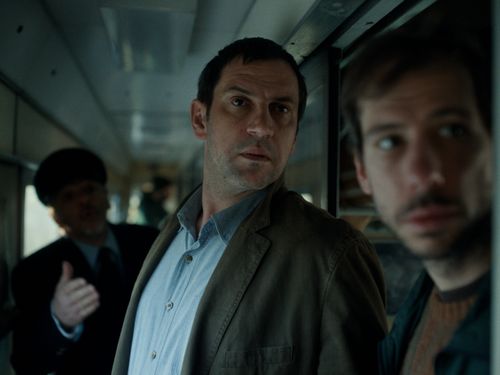
Synopsis
The film is based on a true event that took place in February 1993 during the war in the former Yugoslavia. Armed members of Serbian paramilitary forces stopped a passenger train from Belgrade to Bar at a small station in Štrpci, Bosnia and Herzegovina. They had information about Muslim passengers on the train, abducted 19 of them, and soon after the train departed, executed them. Among the five hundred passengers, no one dared to oppose them except one man: retired military officer Toma Buzova, who was traveling to visit his son. He paid for his courage with his life. The film won the Palme d’Or at the Cannes Film Festival 2024 for Best Short Film.
Nebojša Slijepčević
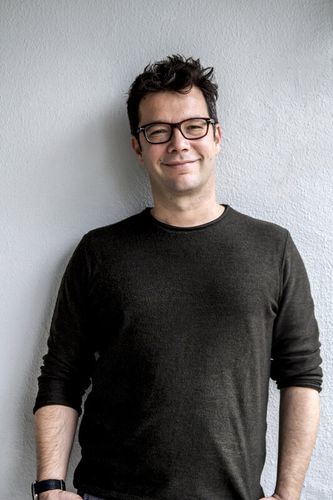
Nebojša Slijepčević was born in 1973 in Zagreb, Croatia. He graduated in Film Directing from the Academy of Dramatic Art in Zagreb. His documentary feature Srbenka (2018) was shortlisted for European Film Awards and won numerous awards at international film festivals, among them the Heart of Sarajevo Award as well as the Audience Award at the Sarajevo Film Festival, and a special mention of the Buyens-Chagoll jury at Visions du Réel 2018. His feature documentary Gangster of Love (2013) won the Audience Award at Zagreb Dox and premiered internationally at Hot Docs and Karlovy Vary. It was one of the biggest box office hits in Croatia. Nebojša directed numerous tv documentaries, series, and short films. He teaches at the Academy of Dramatic Art in Zagreb.
Director's statement
The film is based on a horrific crime committed in Bosnia 30 years ago. There are three sides to every crime: the perpetrators, the victims, and the witnesses. I was particularly interested in the third group. We approached the film as if it were happening today, and as if this situation was happening to us, here. It’s easy to imagine that the passengers on the train are someone else, but they could easily be us, and in a way - they are. Acts of violence take place around us daily. Locally, it’s not as extreme as during the war in former Yugoslavia, but globally - it is even more extreme. And each of us is faced with the question posed by the film’s protagonist: should we stand up to violence even if we are not its immediate target?

